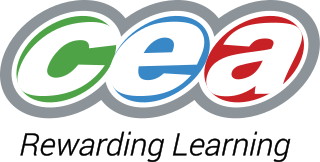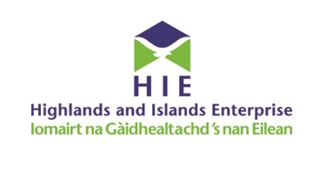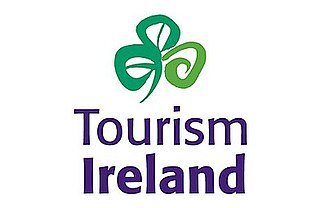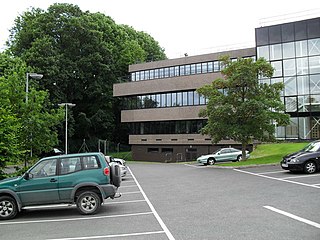The Northern Ireland Executive is the devolved government of Northern Ireland, an administrative branch of the legislature – the Northern Ireland Assembly, situated in Belfast. It is answerable to the assembly and was initially established according to the terms of the Northern Ireland Act 1998, which followed the Good Friday Agreement. The executive is referred to in the legislation as the Executive Committee of the assembly and is an example of consociationalist ("power-sharing") government.
The North/South Ministerial Council (NSMC) is a body established under the Good Friday Agreement to co-ordinate activity and exercise certain governmental powers across the whole island of Ireland.

The Council for the Curriculum, Examinations & Assessment (CCEA) is a non-departmental public body (NDPB) of the Department of Education. Its function and purpose is described in Part VIII of the Education (NI) Order 1998.

Foras na Gaeilge is a public body responsible for the promotion of the Irish language throughout the island of Ireland, including both the Republic of Ireland and Northern Ireland. It was set up on 2 December 1999, assuming the roles of the Irish language board Bord na Gaeilge, the publisher An Gúm, and the terminological committee An Coiste Téarmaíochta, all three of which had formerly been state bodies of the Irish government.
The Ulster-Scots Agency is a cross-border body for Ireland which seeks to "promote the study, conservation and development of Ulster-Scots as a living language, to encourage and develop the full range of its attendant culture, and to promote an understanding of the history of the Ulster-Scots [people]."
The North/South Language Body is an implementation body, provided for by the Belfast Agreement, that exists to implement policies agreed by Ministers in the North/South Ministerial Council (NSMC) in Republic of Ireland and Northern Ireland with regard to the Irish and Ulster-Scots languages on a cross border all Island basis.

The Department for the Economy is a devolved Northern Ireland government department in the Northern Ireland Executive. The minister with overall responsibility for the department is the Minister for the Economy.

Highlands and Islands Enterprise is the development agency for the Highlands and Islands of Scotland, an executive non-departmental public body of the Scottish Government with the role to "help build a prosperous, sustainable and inclusive economy across the Highlands and Islands, attracting more people to live, work, study, invest and visit there."
The Department of Agriculture, Environment and Rural Affairs is a government department in the Northern Ireland Executive, the devolved administration for Northern Ireland. The minister with overall responsibility for the department is the Minister of Agriculture, Environment and Rural Affairs. The department was called the Department of Agriculture and Rural Development between 1999 and 2016. The Minister of Agriculture previously existed in the Government of Northern Ireland between 1921 and 1972, where the department was known as the Ministry of Agriculture. The current Permanent Secretary is Katrina Godfrey.

The Department for Infrastructure is a devolved Northern Ireland government department in the Northern Ireland Executive.
The Department of Education (DENI) is a devolved Northern Irish government department in the Northern Ireland Executive. The minister with overall responsibility for the department is the Minister of Education.

The Northern Ireland Civil Service is the permanent bureaucracy of employees that supports the Northern Ireland Executive, the devolved government of Northern Ireland.

Tourism Ireland is the marketing body responsible for marketing the island of Ireland overseas. Tourism Ireland was established as one of "six areas of co-operation" under the framework of the 1998 Belfast Agreement and became operational in January 2002.

VisitBritain is the name used by the British Tourist Authority, the tourist board of the United Kingdom incorporated under the Development of Tourism Act 1969.
The Special EU Programmes Body (SEUPB) is a cross-border body in the United Kingdom and Republic of Ireland which co-ordinates projects funded by the European Union and implemented in Northern Ireland and adjacent regions: the Border region of the Republic of Ireland, and Western Scotland. The SEUPB is one of six cross-border bodies established after the 1998 Belfast Agreement, given statutory force by Section V of both the North/South Co-operation Order 1999 and the British-Irish Agreement Act, 1999 in the UK and Republic respectively. SEUPB receives and disburses funds under two EU programs: Interreg IVA and Peace III. It may also compete for Interreg IVB and IVC funds. It reports to the European Commission, the Northern Ireland Executive and the Government of Ireland.

The Department of Justice is a government department in the Northern Ireland Executive, which was established on 12 April 2010 as part of the devolution of justice matters to the Northern Ireland Assembly. The department's Permanent Secretary is Hugh Widdis. It combines the previous work of the Northern Ireland Office and the Ministry of Justice, within the United Kingdom Government, which were respectively responsible for justice policy and the administration of courts in Northern Ireland.
Safefood, is the public body responsible for raising consumer awareness of issues relating to food safety and healthy eating across the island of Ireland. Founded in 1999, Safefood is one of six North-South implementation bodies established jointly by the British and Irish governments under the terms of the British-Irish Agreement Act.
The 1993 Queen's Birthday honours were appointments by some of the 16 Commonwealth realms to various orders and honours to recognise and reward good works by citizens of those countries. The Birthday Honours are awarded as part of the Queen's birthday celebrations and were announced on 11 June 1993 for the United Kingdom, the Bahamas, Solomon Islands, Saint Lucia, Grenada, Papua New Guinea, and New Zealand and the Cook Islands. The list for Australia was announced separately on 14 June.

South African Tourism is the official national marketing agency of the South African government, with the goal of promoting Tourism in South Africa both locally and globally.










